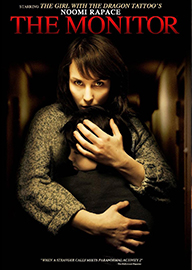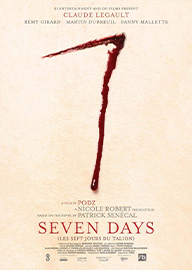협녀: 칼의 기억 AKA Memories of the Sword
- 6.3
- Action
- 2015
- 2h 1m
- PG-13
a gripping South Korean historical action-drama directed by Park Heung-sik. Set during the Goryeo period, it follows a master swordswoman torn between loyalty, revenge, and love after a betrayal leaves her orphaned. The film blends breathtaking sword choreography, emotional intensity, and political intrigue, exploring themes of vengeance, destiny, and the cost of honor.












Comments
0Reviews
0Summery
1Please sign in to comment.
Please sign in to review.
Memories of the Sword unfolds as an intricate tapestry of betrayal, vengeance, and the relentless pursuit of justice, set against the turbulent backdrop of Korea’s Goryeo period. The story begins in a time of political upheaval where martial skills and loyalty dictate survival, and where the line between friend and foe is as sharp as a sword’s edge. Hwa-Ok, a young girl whose life is shattered by the treachery of her mentor, finds herself orphaned and consumed by a desire for vengeance that will shape her destiny for years to come. The opening sequences establish not only the intensity of the historical setting but also the emotional stakes, as Hwa-Ok witnesses the murder of her parents at the hands of her mentor’s ambitious designs. From these earliest moments, the narrative cements itself as a tale of bloodlines, betrayal, and the inexorable pull of retribution that drives the protagonist forward through a series of perilous encounters. The film weaves together the personal and political, showing that in a society governed by honor and martial prowess, personal vengeance and societal conflict are inextricably intertwined.
As Hwa-Ok grows into a formidable swordswoman under the tutelage of those who survived the chaos of her childhood, the film delves into the psychological ramifications of loss and betrayal. She learns not only the art of the sword but also the subtleties of strategy, patience, and the careful timing of action that is necessary to outmaneuver foes who are just as cunning and ruthless as herself. Lee Mong-hak, her betrayer and the central antagonist, is portrayed as a complex figure whose ambition and cunning make him both terrifying and compelling. His machinations set the stage for numerous confrontations, each escalating in intensity and showcasing the film’s breathtaking choreography and historical detail. The camera lingers on sword duels, capturing the fluidity and precision of combat while never losing sight of the narrative stakes, allowing viewers to feel both the physical tension of battle and the emotional tension of a long-simmering vendetta.
Intertwined with Hwa-Ok’s pursuit of justice are moments of reflection on love, loyalty, and human connection. Memories of mentors lost, friends betrayed, and fleeting moments of tenderness remind audiences that beneath the violence lies a deeply human story about resilience and the cost of revenge. The narrative is meticulous in portraying how the past continually intrudes upon the present; every decision, every strike, every word is weighed against a history of violence and the long shadows of earlier betrayals. The film’s cinematography emphasizes this, contrasting the brutality of combat with the serene landscapes of Korea, the stillness of temples, and the quiet interiors where strategy and plotting unfold. These juxtapositions deepen the story’s emotional resonance, reminding the audience that vengeance is not simply an external pursuit but an internal struggle with morality, grief, and the burden of legacy.
The plot’s complexity is further heightened by the interplay of multiple characters whose allegiances shift and evolve over time. Allies of Hwa-Ok, mentors who guide her in her formative years, and even those whose intentions appear noble are revealed to be layered with personal agendas. Each interaction is charged with tension, as trust is fragile and betrayal can come from unexpected quarters. This uncertainty amplifies the suspense, making each confrontation both a test of martial skill and a challenge to the characters’ emotional fortitude. The story does not shy away from illustrating the consequences of ambition, illustrating that the pursuit of power and revenge exacts a price not only on those directly involved but also on those around them.
As the film progresses, the central duels and conflicts build to a climactic confrontation that is both narratively and emotionally satisfying. Hwa-Ok faces Lee Mong-hak in a final showdown that is as much about skill as it is about moral reckoning, about the capacity for forgiveness and the destructive allure of vengeance. Every movement is purposeful, every strike a culmination of decades of preparation and personal history. The choreography combines historical realism with cinematic flair, creating sequences that are visually stunning while never feeling gratuitous. Alongside these climactic battles, the film continues to explore the intimate consequences of the unfolding violence: the human cost of conflict, the scars of betrayal, and the possibility of redemption even in the face of seemingly insurmountable adversity.
Ultimately, Memories of the Sword is more than a historical action-drama; it is an exploration of the human condition through the lens of martial arts, honor, and revenge. The story demonstrates how personal and political histories intertwine, how trauma shapes identity, and how the pursuit of justice, if not tempered with wisdom, can consume those who seek it. Through Hwa-Ok’s journey, viewers are invited to experience a world where beauty and brutality coexist, where loyalty and betrayal are two sides of the same coin, and where every decision carries the weight of both past memories and future consequences. The film’s lasting impact lies in its ability to combine historical authenticity, emotionally resonant storytelling, and breathtaking action, leaving audiences with a profound appreciation for the complexity of human motives and the timeless appeal of stories about courage, honor, and vengeance.
In the years following its release, Memories of the Sword has been lauded for its exceptional performances by Kim Go-eun, Lee Jung-jae, and Nam Goong-min, for its striking visual style, and for its ability to balance historical drama with intense action sequences. It stands as a benchmark for South Korean cinema, demonstrating that martial arts storytelling can transcend spectacle when combined with deep character development and emotionally charged narratives. For fans of historical dramas, action films, and complex narratives of revenge and honor, Memories of the Sword offers a richly textured, unforgettable cinematic experience that resonates far beyond its runtime.